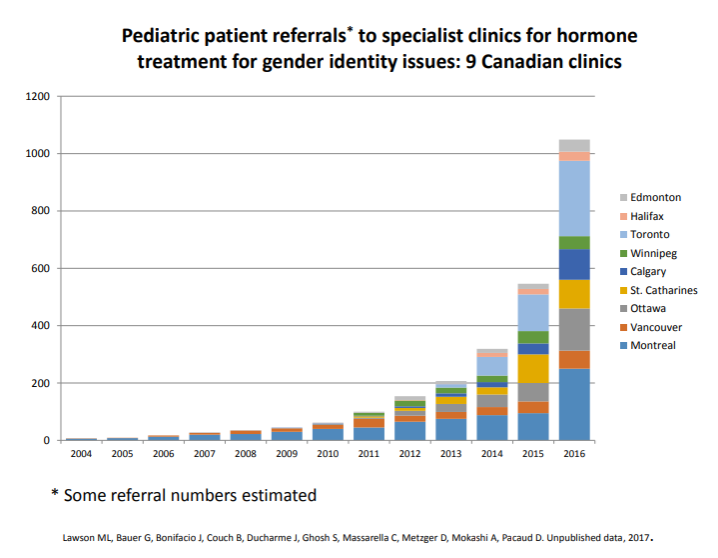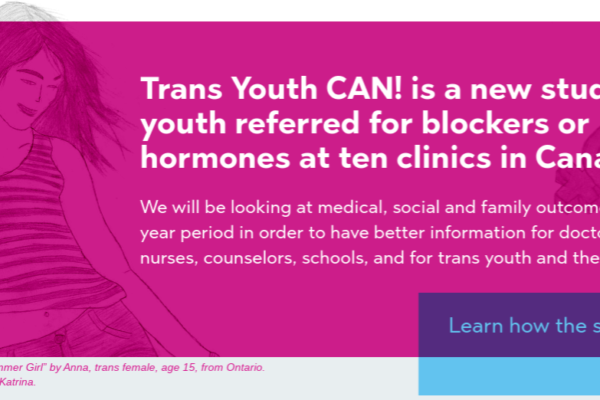Last week, Prime Minister Justin Trudeau sent a mandate letter to David Lametti, Minister of Justice and Attorney General of Canada. In it, the criminalization of conversion therapy is identified as a top priority of the newly formed Liberal minority government. The letter directs Mr. Lametti on behalf of the government, in particular, that he will:
Work with the Minister of Diversity and Inclusion and Youth to amend the Criminal Code to ban the practice of conversion therapy and take other steps required with the provinces and territories to end conversion therapy in Canada.
Prime Minister Justin Trudeau to Justice Minister David Lametti
The latest instantiation of the federal bill to ban conversion therapy is Bill S-202. It received a first reading in the Senate, also last week. The Bill states:
This enactment amends the Criminal Code to make it an offence to advertise conversion therapy services for consideration and to obtain a financial or other material benefit for the provision of conversion therapy to a person under the age of eighteen.
It defines conversion therapy as:
Definition of conversion therapy
286.6 (1) In this section, conversion therapy means any practice, treatment or service designed to change an individual’s sexual orientation or gender identity or to eliminate or reduce sexual attraction or sexual behaviour between persons of the same sex. For greater certainty, this definition does not include a surgical sex change or any related service.
This legislation is irresponsible and dangerous
It is our position that therapies to address same-sex attraction and those intended to explore gender identity are distinct and require different models of understanding. The legislation conflates these two topics which is irresponsible and dangerous for a number of reasons we will outline in this position statement.
The consequences of unquestioned gender identity-affirmation may lead to permanent and irreversible medical procedures. Any legislation that attempts to restrict, though a chilling effect that prohibits the provision of an array of services and therapies that are needed by youth to explore and understand the implications of the life-changing decisions they may be making, is a barrier to best-practices.
Psychotherapy is conversion therapy when it is performed with a specific outcome in mind. This could include coercive and cruel practices to change someone’s sexual orientation or it could include a therapist who unquestioningly affirms a child’s newly adopted gender identity without, in a supportive manner, helping that child explore and understand the reasons behind their identity development.
The special exemption for surgical sex-change and related services, along with the targetting of this bill at youth under 18 are reasons we believe the intent of this bill is not as advertised.
Even Ontario’s Bill 77 Affirming Sexual Orientation and Gender Identity Act, which came into effect in 2015, contains this important exception: “services that provide acceptance, support or understanding of a person or the facilitation of a person’s coping, social support or identity exploration or development” are excluded from the definition.
Growing awareness of gender identity among youth
There are growing numbers of youth who have been introduced to the idea of gender identity through Inclusive Education mandates and other initiatives in Canada, such as workshops that are exposing children to the idea that they have a gender identity. This is an untested ideology that is controversial in its application as a universal truth. The research group behind the Canadian puberty blocker study admitted in one of their exhibition posters the need to “examine stability of gender identity over time”. However, there are no long-term studies underway anywhere in the world and many patients of gender clinics are “lost to follow-up”. At the same time, there are growing numbers of detransitioners in Canada and around the world who express regret that they pursued medical transition to better match their physical characteristics with their perceived gender identity.
Research and evidence
The new trend of social gender transition is a form of psycho-social treatment where the long term outcomes on health and well-being have not been researched and are not yet understood. By contrast, significant research has been conducted on minors that demonstrate that a majority (61-88%) of youth who experience gender dysphoria will become comfortable and identify with their natal sex if they are not socially transitioned (ie provided with confirming psycho/social treatment). (Waillen et al 2008; Drummond et al 2008; Singh. D. 2012; Steensma et al 2013) Further, there are no studies that the long-term well-being of minors is harmed by exploratory therapies such as watchful waiting or developmentally appropriate therapy that encourages children to explore and remain curious about their gender identity and support them in this exploration without pre-determining that a specific gender identity must be affirmed.
Children and adolescents are presenting to gender clinics in unprecedented numbers and with complex case histories. Throughout the western world, including Canada, there is a several thousands of percent increase in the numbers of youth being referred to gender clinics.

Further, the ratio of males:females seeking gender transition has reversed. Many of these female adolescents have no previous history of gender variance. Research has shown, however, that many natal females who present to gender clinics are same-sex attracted. 76% according to this Canadian study. (Wood, Zucker et al 2015)
Adolescent-onset gender dysphoria particularly in natal females, also may be subject to higher rates of fluidity. Some gender clinics around the world have adopted an “extended assessment” protocol to best treat adolescents (Churcher Clark 2019). Mental health professionals require the ability to apply their professional discretion to fully explore all issues affecting an adolescent’s assertion that they suddenly identify as a different gender, as well as provide information regarding the long term risks of irreversible medical interventions. Mental health professionals must be able to practice without concern that offering appropriate exploration services and factual information could be construed as a criminal activity defined as “conversion therapy”.
Policy capture that threatens children and youth
Bill S-202 is an egregious example of policy capture that uses the broad public support for a ban on cruel and coercive therapy to change someone’s sexual orientation to instead criminalize best-practice therapeutic approaches that assist gender-diverse youth. This is a sleight of hand that puts the integrity of government policymaking and public trust in our healthcare providers at risk.
Qualified therapists should be encouraged to help gender-diverse youth understand and explore issues related to gender identity, not discouraged from doing so under threat of criminal prosecution.
We call on our government to prioritize the long term well-being and safeguarding of children above the political activism that seeks to criminalize and prevent mental health professionals from encouraging gender-diverse youth to explore the reasons behind why they’ve adopted a particular gender identity and, in some cases, undertake irreversible medical decisions that result in permanent change to their appearance, damage their physical health, and render them infertile.
As written, Bill S-202 is dangerous to gender-diverse youth. If it passes, our government will be guilty of practicing medicine without a license.
Reference: This position statement is informed largely by the work of the group Rethink Identity Medicine Ethics.




Thank you so much. This is incredibly important for the well being of young people.
Excellent statement. Thank you.